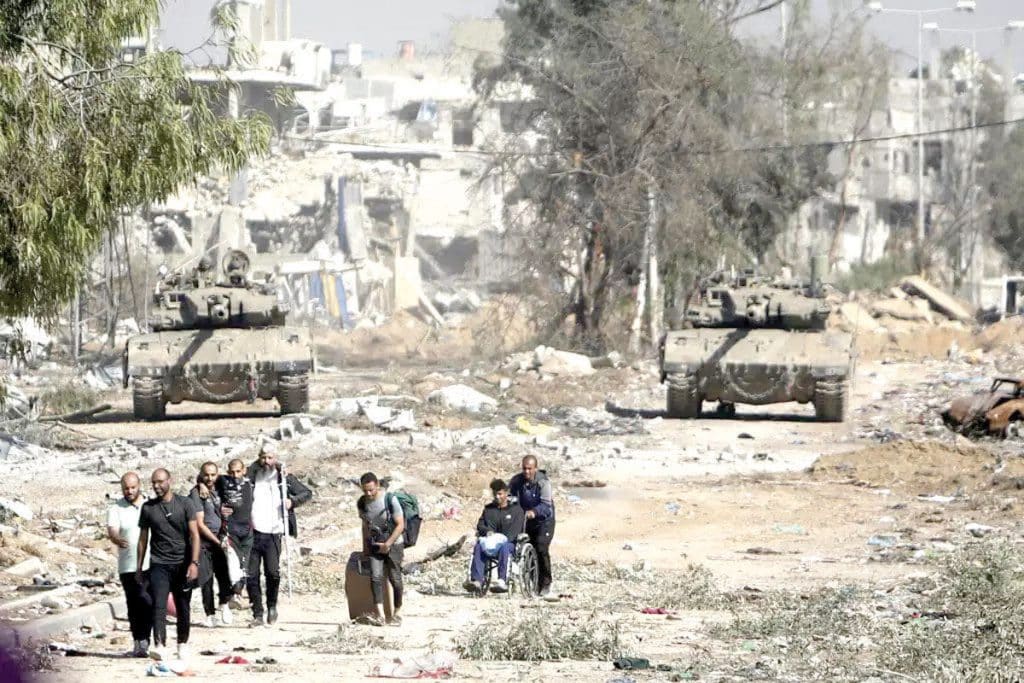Ceasefire possible, trust distant.
Two years after the start of the unprecedented Israeli attacks on the Gaza Strip, sensitive and complex negotiations are currently underway in Sharm el-Sheik, Egypt, to achieve a ceasefire and implement Trump’s 20-point plan; a plan that, while raising hopes for an end to the war, has also attracted widespread criticism. The talks, which are being held with the participation of the Hamas delegation, representatives of the Israeli regime (indirectly), US envoys including Jared Kushner and Whitaker, and the active role of intermediary countries such as Qatar, Turkey, and Egypt, focus on three main areas: a permanent end to the war, a complete withdrawal of the occupying forces from Gaza, and a prisoner exchange.
Hamas: Positivity conditional on guarantees
A new statement from Hamas, read by Taher al-Nunno, media advisor to the head of the movement’s political bureau, emphasized that the Hamas delegation “has shown the necessary positivity and responsibility for the progress of the negotiations,” and at the same time, a list of prisoners for the final exchange has been presented. But sources close to the talks say Hamas is still insisting on its key positions, including its complete rejection of the disarmament clause, its insistence on a complete Israeli withdrawal from all parts of Gaza, and its demand for real guarantees from the United States that it will not return to war.
“Israel has already violated previous agreements twice and we do not trust the occupier. That is why we need clear guarantees from Trump and other supporters,” Hamas’s chief negotiator, Khalil al-Hayyah, told Egyptian state television.
Arab axis split; Egypt left alone
The Lebanese newspaper Al-Akhbar reported a rift in the Arab countries’ approach to the talks. According to an Egyptian official, there is a serious disagreement between Cairo, Riyadh, and Abu Dhabi on how to deal with Hamas. Saudi Arabia and the UAE believe that now is the time to destroy the movement and accuse Egypt of supporting Hamas too much. Egypt, on the other hand, considers the elimination of Hamas unrealistic and emphasizes the need for its participation in the future of Gaza.
This gap has led Cairo to enter into negotiations independently and then inform other countries of the results, which indicates the geopolitical complexity of the crisis.
Washington is optimistic but under pressure
American officials, including Trump’s special envoys, have told the media that they are “optimistic about reaching an agreement this week.” Jared Kushner and Whitaker are said not to leave Egypt until an agreement is reached. Some analysts close to the White House believe that Israeli military pressure has played an effective role in forcing Hamas to take a pragmatic stance, but at the same time, they believe that it is time for Netanyahu to show more flexibility.
UN complains about “peace without Palestinians”
Internationally, Trump’s proposal has faced a wave of legal and human rights criticism. UN High Commissioner Navi Pillay, who heads the Commission of Inquiry into the Genocide in Gaza, said the plan “goes against the International Court of Justice” and effectively constitutes a new colonial project by excluding Palestinians from the transitional government.
She stated, “Israel has committed genocide, and this plan does not change that fact.” She also objected to the supervisory role of former British Prime Minister Tony Blair in the Gaza Transition Committee and demanded that “the Palestinians have full control of the transition process.”
Remaining obstacles: from prisoners to an exit plan
Despite progress on prisoner exchanges and initial agreements, sensitive issues such as the final list of prisoners, in particular the release of figures such as Marwan Barghouti, Ahmed Saadat, and Hassan Salameh, have not yet been resolved. Netanyahu has opposed the release of these figures and this could delay the process.
The announced plans for a gradual Israeli withdrawal from some areas of Gaza have also been opposed by Hamas. The movement insists on a complete withdrawal without exceptions and considers the regime’s military presence in areas such as “Teppe Shojaiyeh” and the “Philadelphia Corridor” unacceptable.

